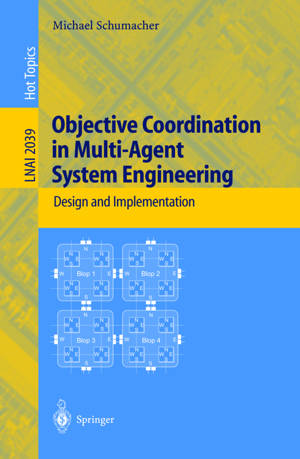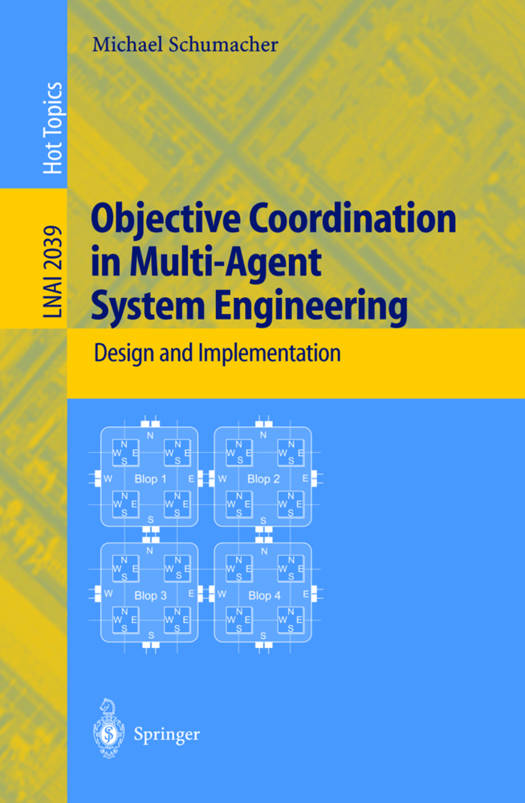
- Afhalen na 1 uur in een winkel met voorraad
- Gratis thuislevering in België vanaf € 30
- Ruim aanbod met 7 miljoen producten
- Afhalen na 1 uur in een winkel met voorraad
- Gratis thuislevering in België vanaf € 30
- Ruim aanbod met 7 miljoen producten
Zoeken
Objective Coordination in Multi-Agent System Engineering
Design and Implementation
Michael Schumacher
Paperback | Engels | Lecture Notes in Computer Science | Lecture Notes in Artificial Intelligence | nr. 2039
€ 83,95
+ 167 punten
Omschrijving
Based on a suitably defined coordination model distinguishing between objective (inter-agent) coordination and subjective (intra-agent) coordination, this book addresses the engineering of multi-agent systems and thus contributes to closing the gap between research and applications in agent technology. After reviewing the state of the art, the author introduces the general coordination model ECM and the corresponding object-oriented coordination language STL++. The practicability of ECM/STL++ is illustrated by the simulation of a particular collective robotics application and the automation of an e-commerce trading system.
Situated at the intersection of behavior-based artificial intelligence and concurrent and distributed systems, this monograph is of relevance to the agent R&D community approaching agent technology from the distributed artificial intelligence point of view as well as for the distributed systems community.
Situated at the intersection of behavior-based artificial intelligence and concurrent and distributed systems, this monograph is of relevance to the agent R&D community approaching agent technology from the distributed artificial intelligence point of view as well as for the distributed systems community.
Specificaties
Betrokkenen
- Auteur(s):
- Uitgeverij:
Inhoud
- Aantal bladzijden:
- 154
- Taal:
- Engels
- Reeks:
- Reeksnummer:
- nr. 2039
Eigenschappen
- Productcode (EAN):
- 9783540419822
- Verschijningsdatum:
- 25/04/2001
- Uitvoering:
- Paperback
- Formaat:
- Trade paperback (VS)
- Afmetingen:
- 216 mm x 279 mm
- Gewicht:
- 403 g

Alleen bij Standaard Boekhandel
+ 167 punten op je klantenkaart van Standaard Boekhandel
Beoordelingen
We publiceren alleen reviews die voldoen aan de voorwaarden voor reviews. Bekijk onze voorwaarden voor reviews.







